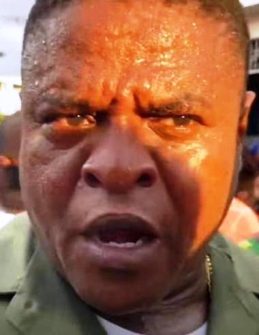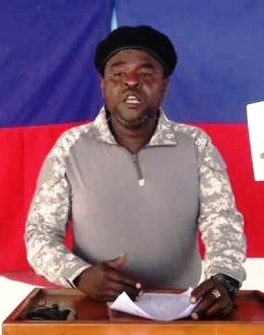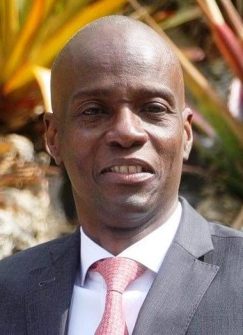In the hands of the gangs.

Haiti today finds itself in an extremely precarious situation. The country is dominated by extreme violence, corruption and political crises. Added to this are the crises generated by natural phenomena, such as drought and earthquakes which have catastrophically struck the island in the last 15 years.
The high level of violence that takes place at the hands of over 200 armed gangs and armed groups fighting each other accentuates the critical issues exponentially, making the country ungovernable. Suffice it to consider that since the beginning of 2024, more than 360,000 people have been displaced in the country due to the violence, and now struggle to access sufficient food, while the loss of jobs and income has affected two thirds of families. UNICEF data shows that 2.7 million people, including 1.6 million women and children, live in areas under the effective control of armed gangs and children are involved in episodes of violence every day, being killed or injured. This involvement is also dictated by the child recruitment activity that the gangs carry out to swell their ranks; in fact, according to UNICEF, half of the armed groups in Haiti currently have children in their ranks.

Jimmy “Barbecue” Cherizier, an influential Haitian gang leader. Photo VOA
Since the beginning of the year, more than 2,500 people have been killed, injured or kidnapped in a new wave of violence that has swept through much of the country, generating a context determined by the desire for affirmation of the “G9 An Fanmi” an alliance between the nine most powerful gangs led by former police officer Jimmy Chérizier, also known as “Barbecue”, a nickname which he apparently earned by charring his victims and who today constitutes an important player in the balance of power in the country. Jimmy Chérizier is also believed to be responsible for the massacre of 2018, a year after the departure of the UN Blue Helmets from Haiti, which occurred in the slums of La Saline and which cost the lives of more than 70 people, including women and children. At the time, Chérizier was an officer of an elite force tasked with fighting gangs but from which he was subsequently expelled only to be recruited by President Moïse who armed and equipped him to control the poor neighbourhoods in order to avoid anti-government riots.

Jimmy Chérizier. He was armed and equipped by the government to control the poor neighbourhoods in order to avoid anti-government riots. Photo VOA
The alliance that Chérizier had the ability to forge between local gangs, better known as the gangsterization of Haiti, was useful for local politicians to control their areas of competence. A balance that, however, was called into question with the killing of President Moïse in July 2021, creating a power vacuum which threw the country into a new phase of instability. The gangs began to operate autonomously, gaining control, which they still maintain, of new areas of the capital, of strategic infrastructures, including roads, ports and airports and of food, electricity and fuel distribution services, extremely worsening the living conditions of the population and the security of the country. Since fuel is the basis of the power supply of many structures, including hospitals, the interruption of supply generates the constant interruption of these services with the respective consequences that also derive from it for the survival of patients. The fuel disruption caused by the gangs also led to the closure of banks, and shops and the switching off of mobile phone antennas, causing the isolation of the country. Today, many gangs have their headquarters in the capital’s slums where they compete for territory and even decide which non-governmental organizations can enter to provide basic services to the population.

President Jovenel Moïse was killed in July 2021 creating a power vacuum. (Pres.Office)
Although sanctioned by the United Nations in September 2022, “Barbecue” is continuing to threaten the country, unleashing, as evidenced by the episodes of last March, attacks on police stations, courts and prisons, causing 2000 prisoners to escape. These actions were aimed at forcing the resignation of Prime Minister Ariel Henry, appointed by President Jovenel Moïse shortly before his assassination in 2021 and who was supposed to leave office at the beginning of February 2024, but also at thwarting the agreement signed in the first ten days of February that Henry signed in Kenya to define the methods of sending a new Kenyan-led security mission already approved in October 2023 by the United Nations Security Council and which provides for the presence of around a thousand police officers to counter the criminal gangs.
The state of emergency led to the birth of a Transitional Presidential Council in April established thanks to the support of CARICOM member countries which will have the task of leading Haiti towards stabilization in order to be able to call new elections by 7 February 2026. The Council, which took office in April followed by the resignation of President Ariel Henry, will be required to appoint a new head of government and a cabinet, as well as coordinate the arrival of the multinational security force. And all of this in the catastrophic context, to say the least, of an extremely frayed social fabric where the gangs, in addition to constituting a threat, still represent an actor on the ground and, as such, demand a place of representation at the negotiating table. (Open Photo: iStock/chinterlang)
Filippo Romeo



